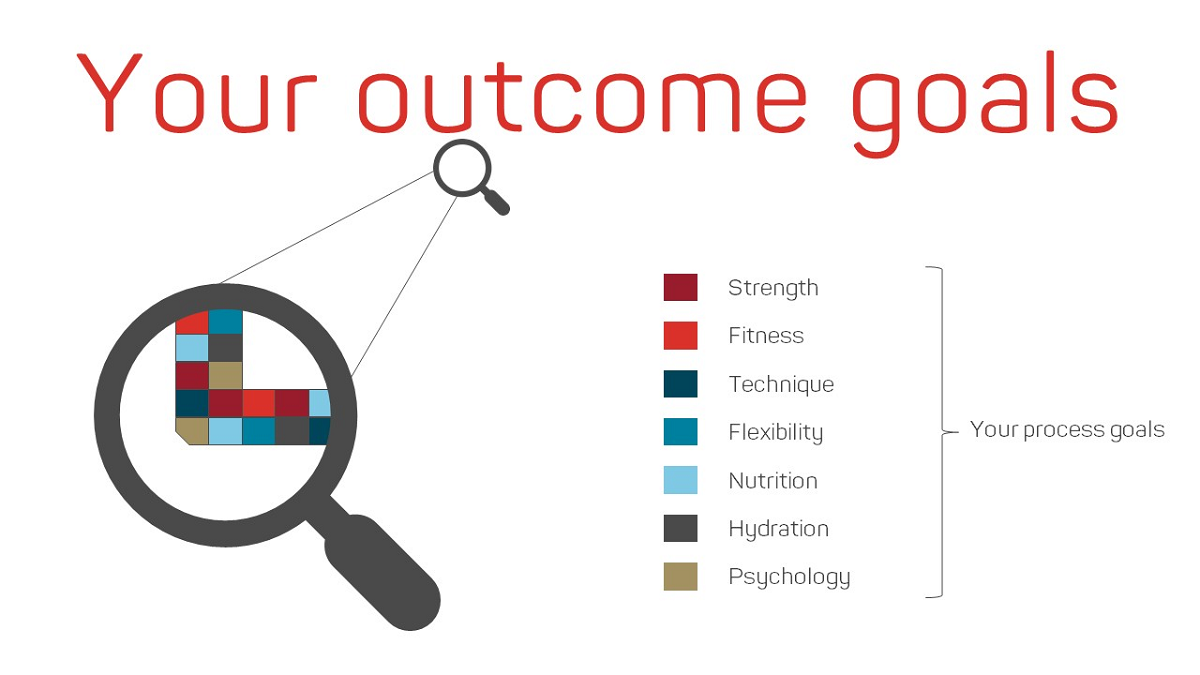
Tips and advice on working towards and achieving goals as an athlete
August 9, 2023As the season draws to a close for many aquatic athletes, and with the start of a new one approaching, it is natural for athletes to start thinking about what they might want to achieve.
Setting goals is a fun process, but from a psychological perspective it also has lots of benefits – and there are a few tips that can make it more likely that athletes achieve those goals.
Firstly, it can be helpful to think of goals in two different categories. The first category is longer-term goals – those might be the ones athletes hope to achieve by the end of the season.
For example, this could be being selected for a specific team or squad, swimming a certain time or mastering a new skill or dive.
Sport psychologists call these ‘outcome goals’ because they relate to the outcome of competitions and the season in general.

These goals should be ambitious but achievable – and thinking about them should be exciting.
The second category is ‘process goals’ – these are the day-to-day things athletes can do to help achieve the outcome goal(s) they have set.
If an athlete’s outcome goal is the destination, these process goals are the steps they take to get there.
Process goals might relate directly to specific aspects of performance, like fitness, strength or technique. These are goals likely to be worked on during training sessions.
But athletes may also want to set process goals in other areas that will have an impact on their performance, such as nutrition, hydration, flexibility and mobility – and even psychology.
The power of process goals is that it helps an athlete’s brain to establish a clear link between an exciting long-term dream and the smaller targets they want to work on week in, week out.
Over a long season, those little tasks can become mundane and, let’s face it, working on them may feel like a bit of a grind.
But knowing those tasks are part of a clear plan to something important and meaningful helps with staying motivated and focused when the going gets tough.
Once an athlete has a good idea of their outcome and process goals, there are a few ways to increase their chances of achieving them.
Write down your goals
Writing them down makes them feel more real and helps an athlete’s brain engage with them to feel more motivated and excited.
Share your goals
Athletes can increase their sense of accountability by telling other people about their goals, meaning they may be less likely to fall short. Even if the person the athlete tells knows nothing about their sport, they still want to tell the person they’ve succeeded.
Level-up your process goals
The point of setting longer-term outcome goals is that an athlete shouldn’t be able to achieve them any time soon. That may also be true of the smaller process goals too.
So, as the season goes on, process goals should probably get harder and an athlete can probably plan out where they want to be at various points along the way.
Let’s say to achieve their outcome goal, they want to improve their fitness, so one process goal might be to increase how long they can do egg-beater for with a final goal of doing 10 minutes after every session.
If they try to do 10 minutes starting tomorrow, it might be too much and they may even risk injury. So they should perhaps start with two minutes, and then plan the points to move to four, then six, then eight.
Update your goals
It’s hard to predict how a season is really going to pan out, so athletes should be willing to alter their goals if circumstances change.
It might be because they are actually progressing faster than expected – but it might be because they experience a set-back, such as an injury, which makes their original goals unattainable.
For a goal to work as a motivational tool, athletes have to make sure they really can achieve it. Of course, it can, and should, be ambitious but if it is totally impossible they will know it and it’s likely they will lose focus and drive.
Similarly, if their goal is too easy they may ease off and not feel satisfied with their season. In either case, it is important to check in on outcome goals as the season goes on and update them if necessary.
Celebrate hitting your goals
This is probably the most important point of all. We often overlook things we do well, and pay too much attention to the things we feel we get wrong, so it is important to really recognise successes as they are achieved.
This is equally true for process goals and outcome goals. Taking time to celebrate the little victories can help to maintain motivation and build confidence.
If an athlete feels good about hitting their goals that day, they’re more likely to want to wake up tomorrow and do it all over again. Also, because they paid attention to those successes, when its competition time they have a mental list of all the hard work they put in to prepare.
 Swim England Members
Swim England Members